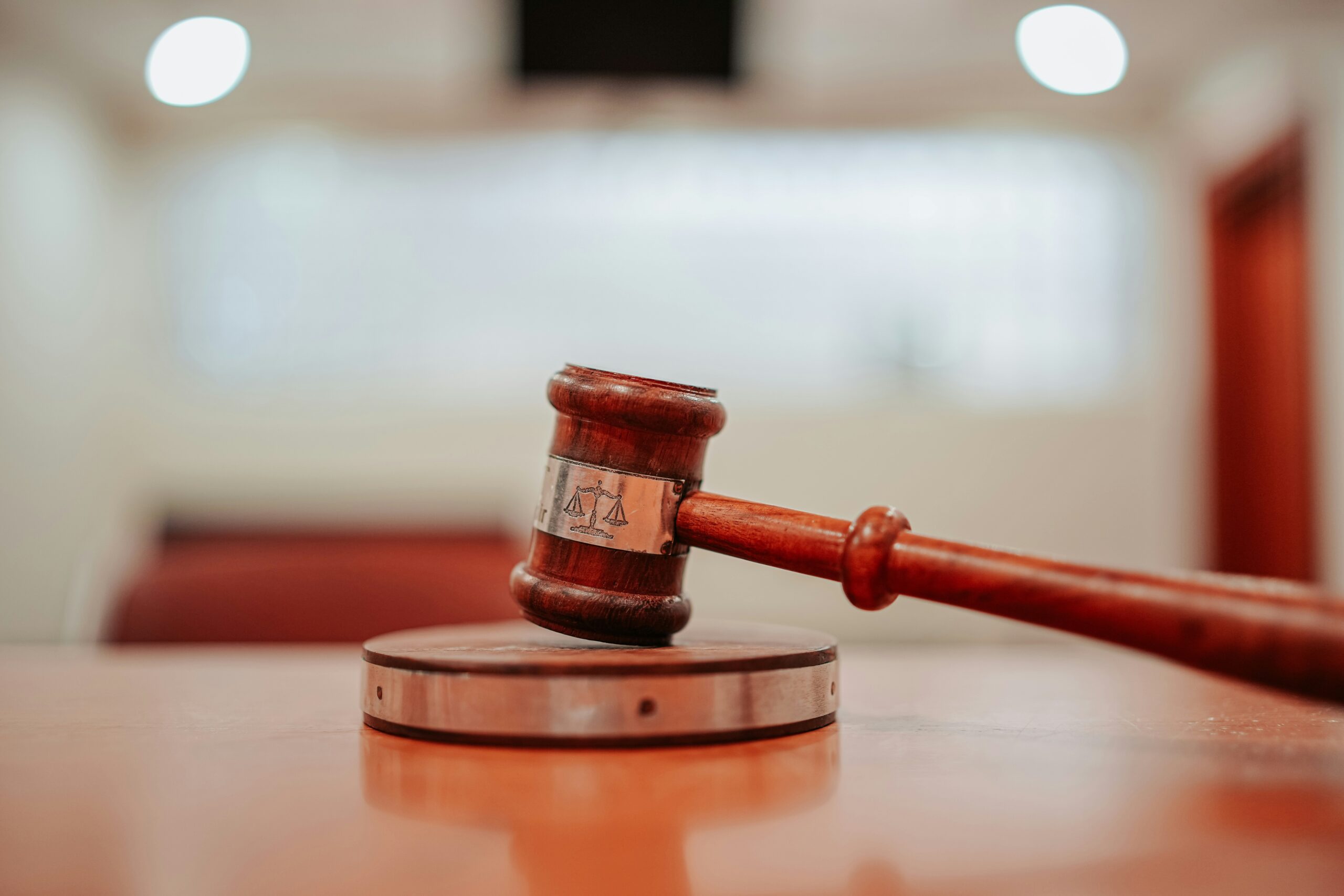
Can I Sell My House If It Has a Charging Order or CCJ? (Complete Guide 2025)
Yes, you can sell a house with a charging order or County Court Judgment (CCJ), but the creditor must be paid from the sale proceeds first. While a charging order doesn’t force you to sell, it can complicate the process and delay completion. Working with your creditor and seeking legal advice can smooth the process.
In this guide, we’ll explore what charging orders and CCJs are, how they can impact your ability to sell your property, and what options you have to manage or resolve these issues effectively.
What is a charging order on a house?
A charging order is a legal order that allows a creditor (someone you owe money to) to place a claim on your property if you can’t pay your debt. If the creditor applies for a charging order and the court agrees, it is registered with the Land Registry, which records the debt against your property. If you sell your home, the creditor can take the amount you owe from the sale proceeds before you receive anything.
For example, if you owe £50,000 and sell your property for £200,000, the creditor will take £50,000, and you’ll get the remaining amount. This can make selling your home more difficult and might lower the amount of money you get from the sale.
There are different types of charging orders:
Final charging order explained
A final charging order is a court order that allows a creditor to enforce the recovery of a debt from your property or land. If you don’t pay, the creditor can then ask the court for an order to sell, allowing them to sell your property to pay off the debt. This is usually a last resort, after other methods of debt recovery have failed. Before the final charging order, the creditor might apply for an interim charging order to secure the debt.
What is an Interim charging order?
An interim charging order is a temporary court order that freezes a debtor’s assets, such as their property, while the court decides how to handle the debt. This order prevents the debtor from selling or transferring ownership of their property until a final decision is made, either by granting a final charging order or repaying the debt fully. As a result, having an interim charging order can make it difficult to sell your property, as it temporarily blocks the ability to complete the sale until the issue with the debt is resolved.
What is a County Court Judgement (CCJ) and how does it affect property sales?
A County Court Judgment (CCJ) is a legal order in England and Wales that requires you to repay a debt. It happens when you fail to pay a debt, and the creditor takes you to court. A CCJ is used for debts between £600 and £5,000 and is typically a last resort after attempts to settle the matter without court action have failed. If you get a CCJ, it can make it harder for you to get credit in the future, as it shows you’ve been legally ordered to repay a debt.
Do you have to sell your house if there is a charging order?
A charging order is a legal claim on your property by a creditor, but it doesn’t mean you have to sell your home. However, if you do decide to sell, the creditor must be paid first from the sale proceeds, up to the amount you owe. Essentially, the charging order ensures that the creditor receives the debt owed to them before you get any money from the sale of the property.
Can I sell my house with a charging order?
Yes, you can sell a house with a charging order, but it can be more complicated and take longer than a regular sale. When you sell, the money from the sale has to first be used to pay off the debt you owe to the creditor. This means the process takes more time because the money from the house does not go straight to you first.
Selling your house with a charging order
Selling a house with a charging order or CCJ can be tricky, but it’s still possible. While it may take slightly longer depending on the route you take, you can sell your property and use the proceeds to pay off your debts. Once the debt is cleared, you’ll be free to move on and start fresh. The key is to stay positive, take action, and get the right support to resolve the situation.
How to sell a house with a charging order or CCJ (step-by-step)
- Get a property valuation: Have a professional assess how much your house is worth and how much equity you have.
- Talk to your creditor: Contact the creditor who placed the charging order or CCJ on your property. Let them know you plan to sell and ask if they’ll work with you on a payment plan or settle the debt to remove the legal claim.
- Seek legal advice: A lawyer can guide you through the process and make sure the sale is carried out legally.
- Be upfront with buyers: Inform potential buyers about the charging order or CCJ. Buyers will want to know why you are selling your property.
- Be flexible on price: You may need to lower your asking price because of the charging order or CCJ, so be ready to negotiate with buyers.
- Prepare your paperwork: Have all necessary documents ready, including paperwork about the charging order or CCJ, to speed up the sale.
- Stage your home: Consider hiring a professional to stage your home. A well-presented home can help it sell faster and for a better price.
Common mistakes to avoid when selling with a charging order or CCJ
Selling a house with a charging order or County Court Judgment (CCJ) can be challenging, but avoiding these common mistakes will help ensure a smoother process:
1. Ignoring communication with creditors
Failing to engage with your creditor early can lead to delays and even legal escalation. Always inform them of your intent to sell and try to negotiate payment terms or settlements.
2. Not seeking legal advice
Selling a property with a charging order involves legal complexities. Skipping professional legal advice could result in errors that delay or even block the sale.
3. Hiding the charging order from buyers
Being upfront about any legal claims on your property builds trust with buyers. Concealing this information will come to light during legal checks and can cause deals to fall through.
4. Underestimating the timeline
Sales involving charging orders often take longer due to additional paperwork and creditor negotiations. Plan ahead and avoid setting unrealistic expectations for a quick sale.
5. Overpricing the property
A charging order reduces the equity you’ll receive after clearing the debt. Pricing your home too high to compensate may deter potential buyers. Work with a professional to price competitively.
6. Choosing the wrong selling route
While a traditional estate agent sale is possible, it may not be the fastest route. For urgent sales, consider working with cash buyers who specialise in properties with legal claims.
Alternatives to selling your home with a charging order
At Sell House Fast, we understand that life’s circumstances can change suddenly, making a quick house sale essential. If you’re dealing with financial difficulties, selling your house without an estate agent might be the fastest option. We’re here to offer a solution that’s both quick and straightforward. Our cash home buyer service enables you to sell your house as is for cash, giving you the freedom to move forward with certainty and peace of mind.
With a process that’s clear and transparent, and the ability to complete sales as fast as you require, you can trust us to handle your sale efficiently and professionally. Plus, we buy your house in any condition, ensuring a swift sale. You won’t have to fret about financing falling through or deal with drawn-out negotiations. Get your free cash offer or call us on 0800 098 3789.
FAQS about selling a house with a charging order or CCJ
If you’re wondering how a charging order or County Court Judgment (CCJ) might affect your ability to sell your home, you’re not alone. Many homeowners face uncertainty about legal restrictions, forced sales, and how these debts impact the selling process. Below, we answer the most common questions about selling a property with a charging order or CCJ, so you can move forward with clarity and confidence.
Can I sell my house if there is a charging order on it?
Yes, you can sell your house even if there is a charging order. However, the debt linked to the charging order must be paid from the sale proceeds before you receive any money. This can make the selling process slightly longer, but it doesn’t prevent you from selling.
Does a charging order force me to sell my house?
No, a charging order does not force you to sell your home. It secures the creditor’s interest in your property but does not automatically lead to a forced sale. However, if you ignore the debt, the creditor could apply for an Order for Sale through the courts.
What happens to a charging order when I sell my house?
When you sell a property with a charging order, the creditor is paid directly from the sale proceeds at completion. The solicitor handling the sale will ensure the debt is cleared before the remaining funds are transferred to you.
Can a creditor make me sell my house for a charging order debt?
A creditor can apply for an Order for Sale if you don’t repay the debt after a charging order is granted. However, courts typically see forcing a sale as a last resort, especially if it’s your primary residence.
Can I sell my house with a County Court Judgment (CCJ)?
Yes, you can sell a house with a CCJ. If the CCJ has led to a charging order, the process is similar, the debt must be settled from the sale proceeds. If no charging order exists, selling might be easier, but the CCJ will still affect your credit record.
Do I need to tell buyers about a charging order on my property?
Yes, you should disclose a charging order to potential buyers. Transparency builds trust and prevents delays during the conveyancing process. Buyers will also find out during legal checks, so early disclosure helps avoid surprises.
Can I sell my house quickly if there’s a charging order?
Yes, selling to a cash buyer can be a faster option if you have a charging order. Cash buyers are often experienced in dealing with properties that have legal claims, reducing delays compared to a traditional sale through an estate agent.
How do I remove a charging order from my property?
To remove a charging order, you need to either fully repay the debt or negotiate a settlement with the creditor. Once paid, you can apply to the court or Land Registry to have the order discharged and removed from your property title.
How much does a charging order affect my home’s sale price?
A charging order doesn’t directly reduce your home’s market value, but buyers might offer less due to the added legal complexities. Additionally, the amount of equity you’ll receive after the sale is reduced by the debt amount.
What’s the difference between an interim and final charging order?
An interim charging order temporarily freezes your property to secure the debt while the court processes the claim. A final charging order legally registers the debt against your property and allows the creditor to enforce repayment from a sale.


